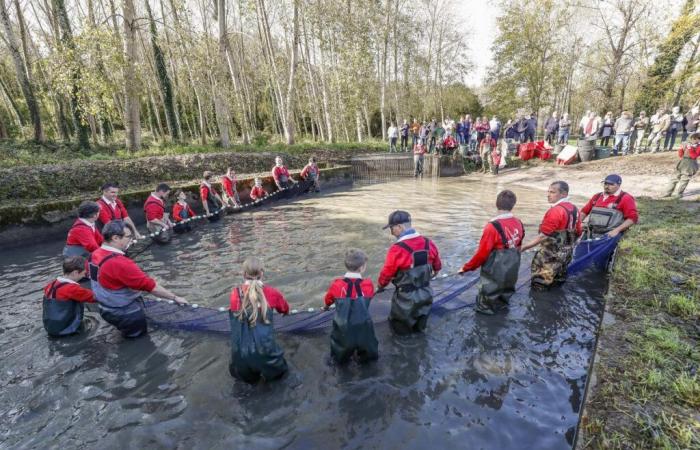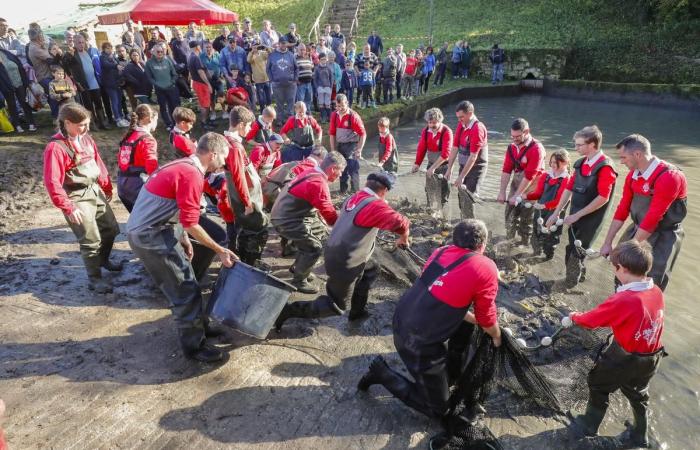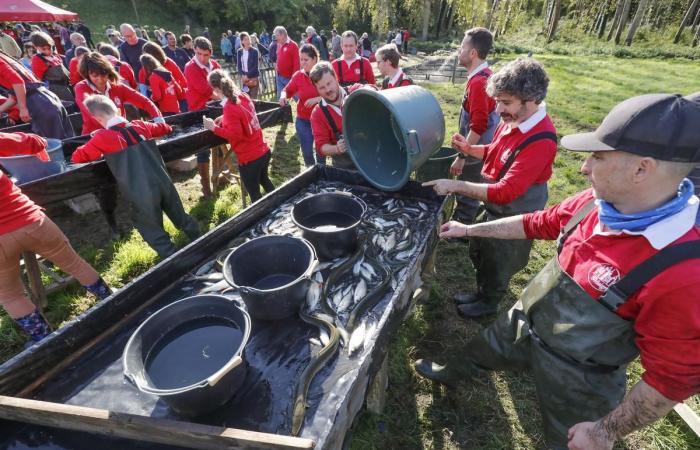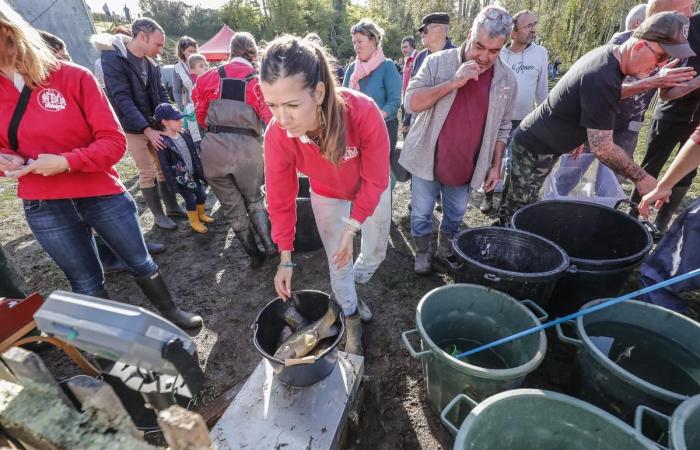DOrdinarily, at the edge of the Saint-Maigrin pond, only the noise of the hunters disturbs the tranquility of this body of water. But on this All Saints' Day weekend, the tons of hunting have their feet dry while dozens of cars dot the edges of the main road: like every three years, it's the great fishing of the pond of Saint-Maigrin.
Located between Barbezieux and Jonzac, the pond was designed in the Middle Ages to serve as a fish reserve. Today covering almost 40 hectares, it is home to pike, eels, carp, tench, roach, etc. sought after by freshwater fish lovers. Every three years, the family in charge of its management organizes its emptying.
The pond valves are successively opened then closed to capture as many fresh fish as possible. Behind, the pond is almost empty.
Jean-Christophe Sounalet / SO
The pond is then completely emptied and the fish large enough to be sold are offered to individuals. “It takes more than a month to dry it out. It’s an old tradition that we want to perpetuate, which allows us to maintain the body of water and regulate the ecosystem,” explains Alice Prévot, one of the fishing organizers. “We generally do it at this time of year because it is not too cold for the people who fish for fish, nor too hot for the fish which are quite fragile,” she explains.
Net shots
Jean-Christophe Sounalet / SO
The fish are collected using a weighted net.
Once the body of water is almost completely emptied, the valves are closed. For three days (from Thursday October 31 to Saturday November 2), they are reopened slowly, so as to trap the fish in a small pond downstream and carry out the nets. Even the children are involved, with their feet in the water.
The fish, still alive, try to escape. They are sorted and offered for sale. “I would need 2 kilos of roach to fry,” asks one of the customers. “I'm going to see what I can do but we don't have much left, we may have to wait for the next haul,” warns one of the volunteers. The smallest ones are set aside to repopulate the pond later.
Jean-Christophe Sounalet / SO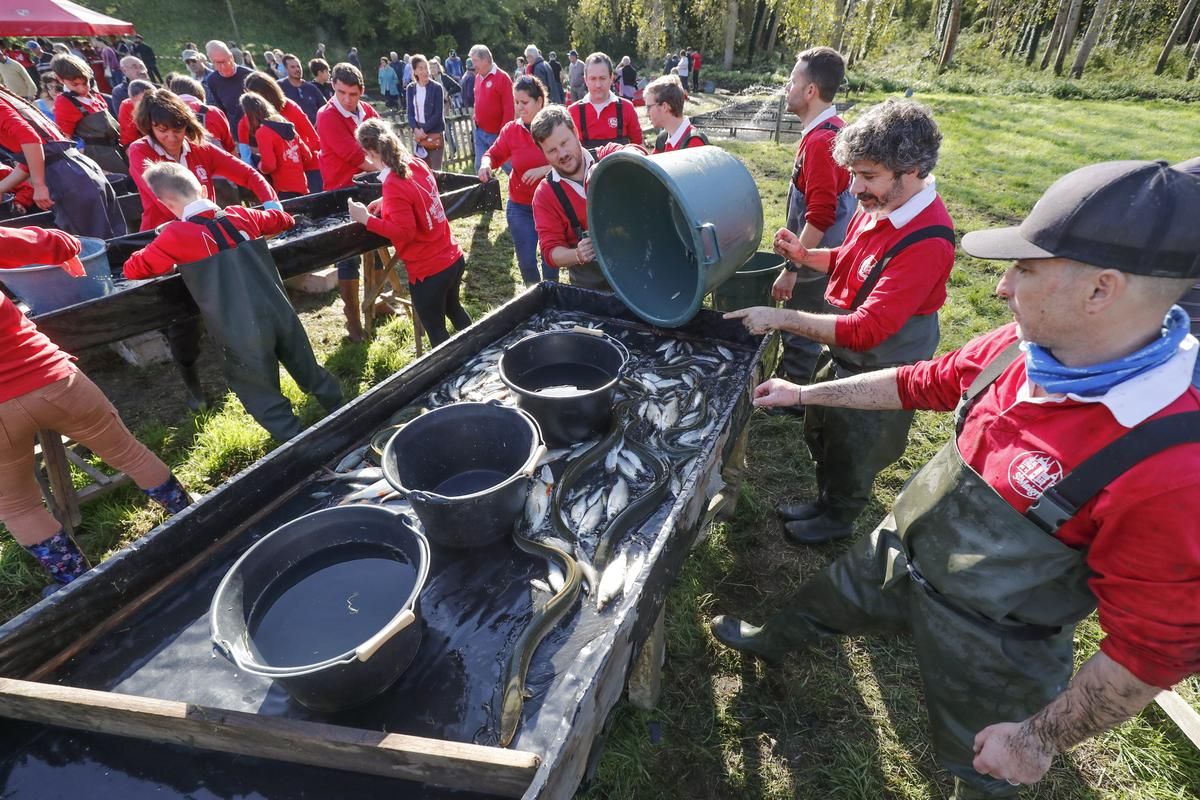
The smallest fish are sorted. The young are set aside to repopulate the pond later.
Requested specimens
On site, the family, children and friends of the family in charge of the pond are recognizable by their fishing suits and their red sweater. The buyers and the curious – around a hundred this Friday morning – are equipped with plastic boots and large basins, many are regulars.
“Some come to buy fish to eat but many actually want to repopulate their own ponds,” emphasizes Alice Prévot. Each haul of the net is closely scrutinized, everyone hopes to leave with the best specimens. Some even came with large oxygenated tanks on trailers: business looks good.
Jean-Christophe Sounalet / SO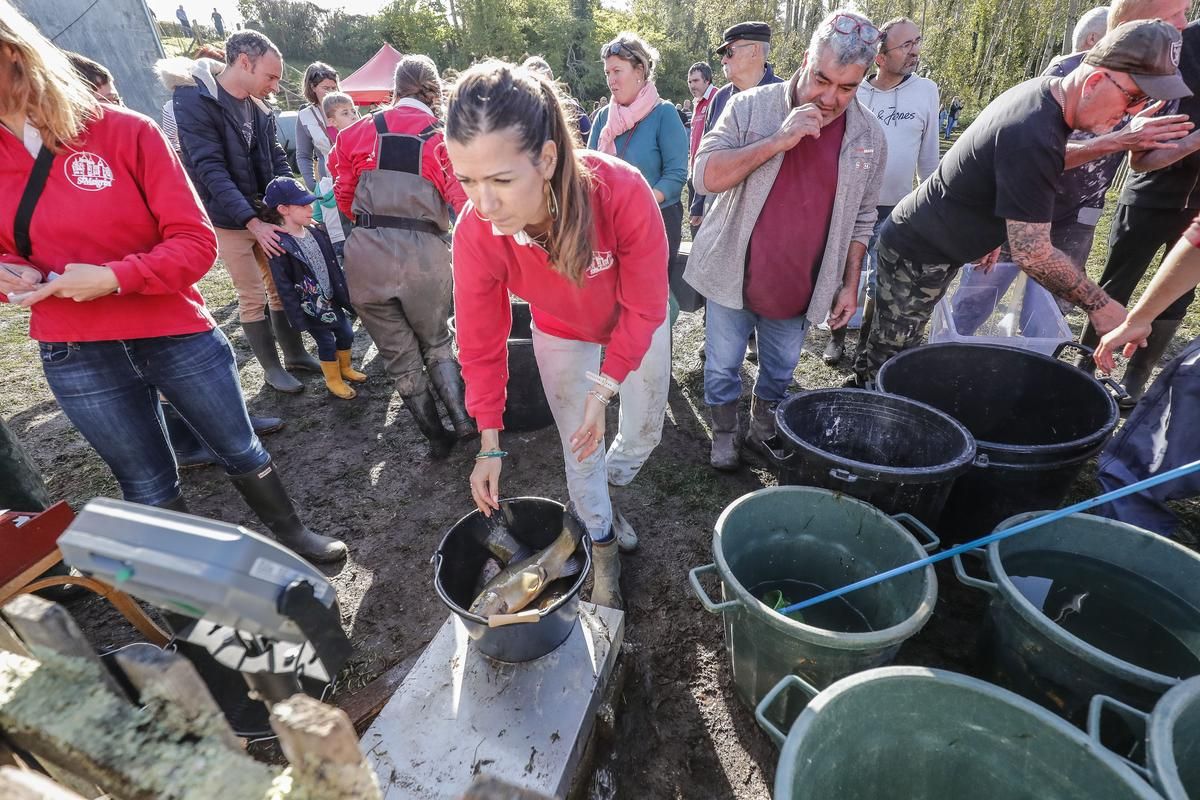
All buyers try to acquire the fish of their choice which must first be weighed.
“I'm here for the little tenches,” says a retiree who drove an hour for the occasion. “It allows me to introduce new specimens to cross-breed! » Unfortunately, the tench that come out of the water at 11:15 a.m. are only big ones. “Too bad, I’ll wait for the next haul…”

